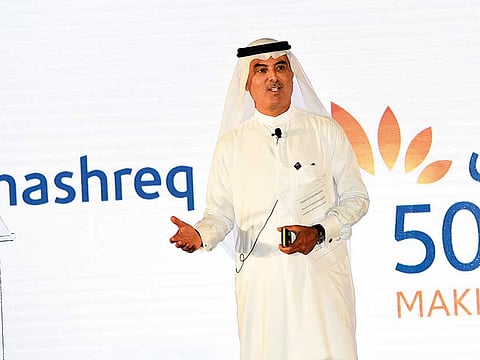Al Ghurair looks back at a memorable term as FNC Speaker
Government serious about any proposal that put interests of the country first

Dubai: The highlight of Abdul Aziz Al Ghurair’s distinguished record of public service was his tenure as Speaker of the UAE’s Federal National Council, FNC. His period of office (2007 to 2011) was a very challenging time for the UAE as the country coped with the combination of the global financial crash in 2008 and the onslaught of the revolutions of the 2011 Arab Spring.
Therefore it was important that “the government took us as a serious partner. We learnt that everyone listens when you put something on the table which is focused solely on the interests of the country. If you put something on the table that it is self-centred, it doesn’t fly. Because on the other side there are intelligent people and they understand what is drives the proposal.
“The government welcomes it when you put the nation ahead of everything. We achieved a great relationship with the cabinet, the executive arm of the government. We improved the working relationship between the FNC and the government,” said Al Ghurair.
He also worked hard to improve the working processes in the FNC. “We set a new and higher standard of working. For example, we changed the length of the term in office from two years to four. We discussed it with the government and we all agreed that made sense and the FNC terms became four years.
“We emphasised our independence from the government by changing our logo. We used to use the government logo, but during my time we said that we were an independent body, not a government entity. So now the FNC has its own logo.
Looking ahead, Al Ghurair pointed out that “the future of the FNC is the hands of all UAE nationals. Their duty is to select the right candidate, who knows how to work on issues and understand the UAE’s priorities and direction, debate it, and make recommendations so the government can adopt it with the country’s interest ahead of everything else”.



